11,000 years ago the country where modern Iran is today was a “paradise”, according to the archeologists currently investigating the world’s oldest Stonehenge-type religious site there. This site is thousands of years older than the famed one in the British Isles. In the most recent issue of the Smithsonian, archeologists speculate that the landscape filled with lakes and leaping gazelles amidst fields of wild grain so inspired its human inhabitants that they raised this religious tribute to its ineffable beauty. The carved stones there include images of vultures that traditional mythology tells us carried off the souls of the dead to heaven. A splendid heaven it must have been, scattering light onto the fertile earth below.
Another tribute to the immense forest (remember the biblical cedars of Lebanon?) on this land remains on tablets of stone that tell the tale of Gilgamesh. This ancient king of Uruk has more power over other humans than he knows what to do with–and dangerous arrogance with respect both to his subjects and to the natural world.
The moving poem of joy to this forest on these stone tablets sits amidst the chronicle of the forest’s destruction by Gilgamesh. After he “conquered” that forest and its guardian spirit, things didn’t go well for this king and his wild-man companion (and only equal among men) Enkidu. Enkidu died shortly thereafter– after all, what is there for a wild man when the wilds are gone?
Gilgamesh defeated the forest and its guardian, but he ended his life in desperation. He had immense logs brought from the sacred forest to raise the mighty gates of Uruk where he ruled. But his heroic escapades did not save him from coming face to face with his own death in the cycle of nature.
The land he deforested as a heroic adventure has fared no better in actual history. The people of Uruk constructed elaborate irrigation canals which resulted in the salination of the water table. And their once-paradise became a desert. But for their stone homage to a land now gone dry, the people themselves have disappeared. Even their language has not been passed on. It is unrelated to any other language in the world, ancient or modern.
Bearing some resemblance to the paradise Gilgamesh came upon in the sacred forest, George Yount’s 1833 description of the Napa Valley went like this:
“It was more than anything a wide and extended lawn, exuberant in wild oats and the place for wild beasts to lie down in. The deer, antelope, and the noble elk held quiet and undisturbed possession of all that wide domain. The above-named animals were numerous beyond all parallel, and herds of many hundred, they might be met so tame that they would hardly move to open the way for the traveler to pass. They were seen lying or grazing in immense herds on the sunny side of every hill, and their young like lambs frolicking in all directions. The wild geese and every species of water fowl darkened the surface of every bay and firth, and upon the land in flocks of millions they wandered in quest of insects and cropping the wild oats which grew there in the richest abundance. When disturbed, they arose to fly. The sound of their wings was like that of distant thunder. The rivers were literally crowded with salmon. It was a land of plenty and such a climate as no other land can boast of.”
In 1850, Thomas Mayfield’s description of the San Joaquin Valley includes these words:
“As we passed below the hills, the whole plain was covered with great patches of rose, yellow, scarlet, orange and blue… some of the patches of one color were a mile or more across… Several times we stopped to pick the different kinds of flowers and soon we had our horses and packs decorated with masses of all colors.”
I like to imagine this moment, when a family of pioneers on their way to the California gold fields (as they were) were stopped in their tracks by the loveliness of the land. Can you imagine these pioneers so stunned by natural beauty they stopped the incessant journeying that caused the peoples of Oregon to term them the “moving people”–and covered themselves with flowers?
Something of the land stayed with this family. Mayfield, a child at the time, was adopted by the local peoples after his mother died and his father went on to the gold fields. The Indians raised Mayfield with love–and passed on their own love for the land to him as well.
But the land and people that nurtured him into manhood have not fared so well. If the Choinumni people fed the Mayfield family so that they would not hunt with their firearms and scare the game, their tribe is tiny and fighting hard for federal recognition. And the land they once cared for is no longer a place to accommodate herds of wild game. It has been plowed into vast irrigated fields for the mono-crops of industrialized agriculture. These fields today are becoming salinated in the same way as the fields of the ancient Middle East. Further, in some areas of the Central California Valley, chemical fertilizers and pesticides have had such a profound effect on the land that nothing will grow on its own. This land, that is, is biologically dead.
Taking down the forests is more than a matter of axes and saws or modern chainsaws, as the tale of Enkidu and Gilgamesh tells us. when we attack the spirit of the forest something vast in the potential legacy of human community dies with it. In the same way, remaking the land for industrial farming is more than a matter of plows and dams. These things are matters intertwined with the human soul. And something of “paradise” is lost when we change the land beyond its ability to care to revive itself and nurture wild things.
Clear cutting and industrial farming are not new things on the human horizon. As the tale of Gilgamesh indicates, humans have for thousands of years wrestled with the idea of taking down a forest–and they have not always won the struggle of conscience involved. The tale of Gilgamesh is a cautionary tale in this respect. as are the journals of Thomas Mayfield.
And so is the salt-laden biologically dead farmland of the Central California Valley waiting to be reclaimed by a species of human care like that which the Choinumni once exercised.
Filed under: Environmental ethics, environmental philosophy, Environmental psychology, Folklore and Oral Tradition, Forest and farm, Indigenous links, Land use, Middle East, Northwest History and Culture, Our Earth and Ourselves, worldviews | Tagged: Environmental lessons in folklore, Gilgamesh, sustainability |




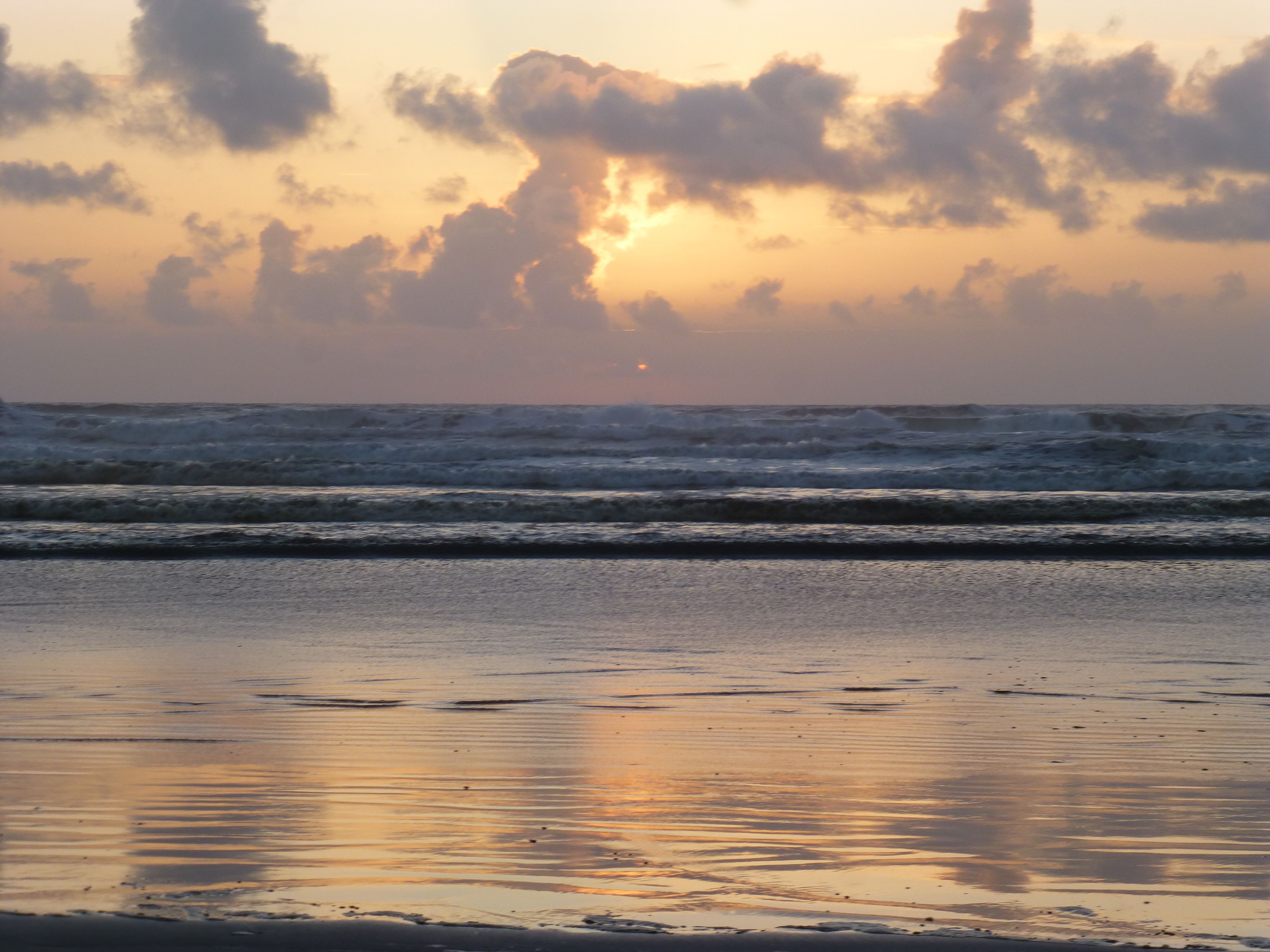






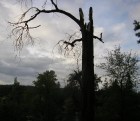
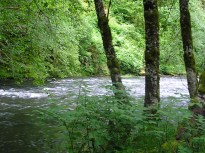



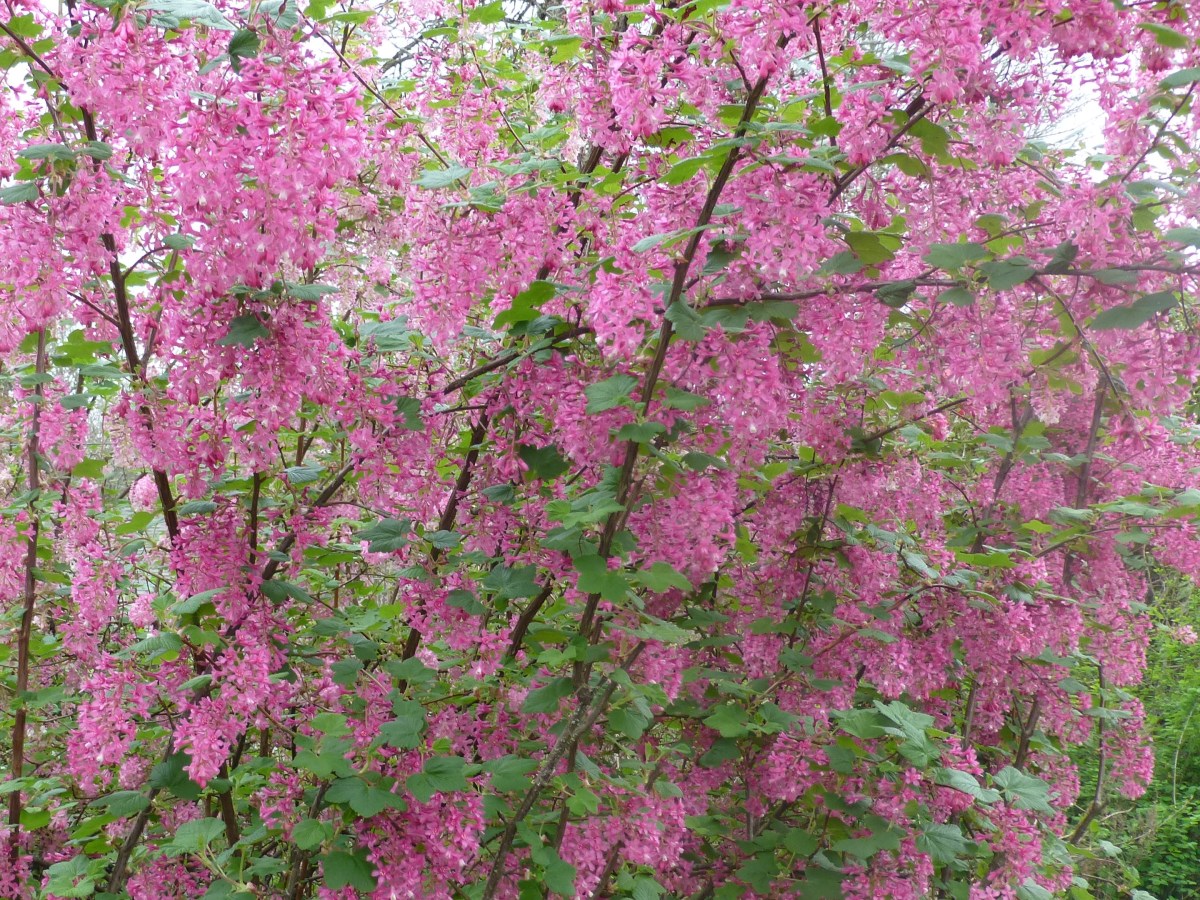
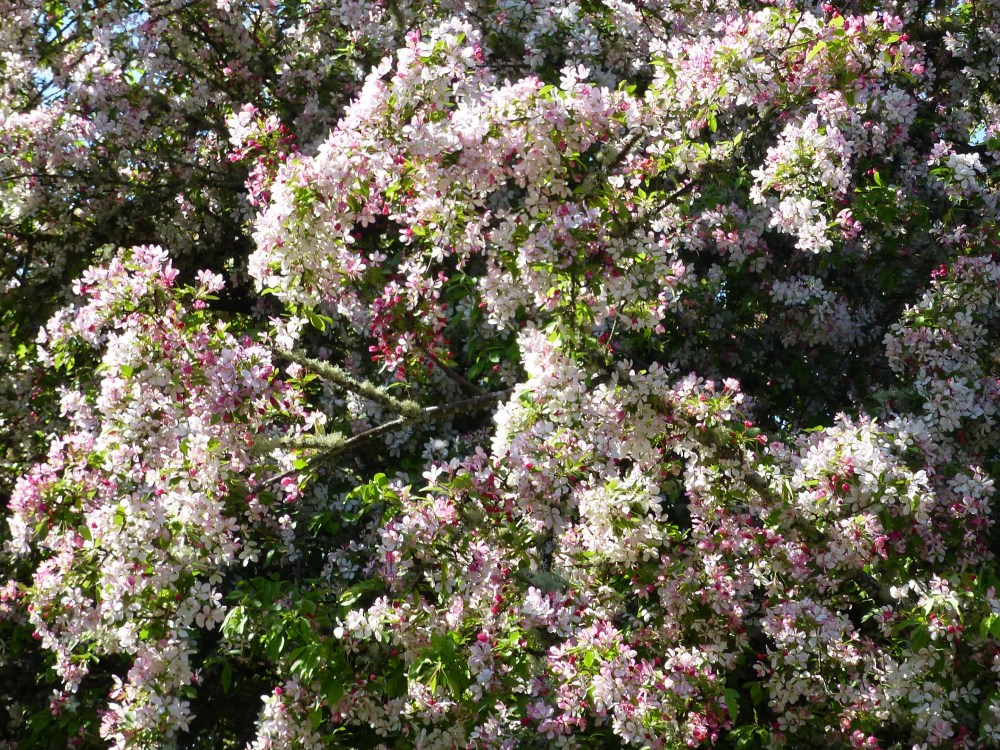
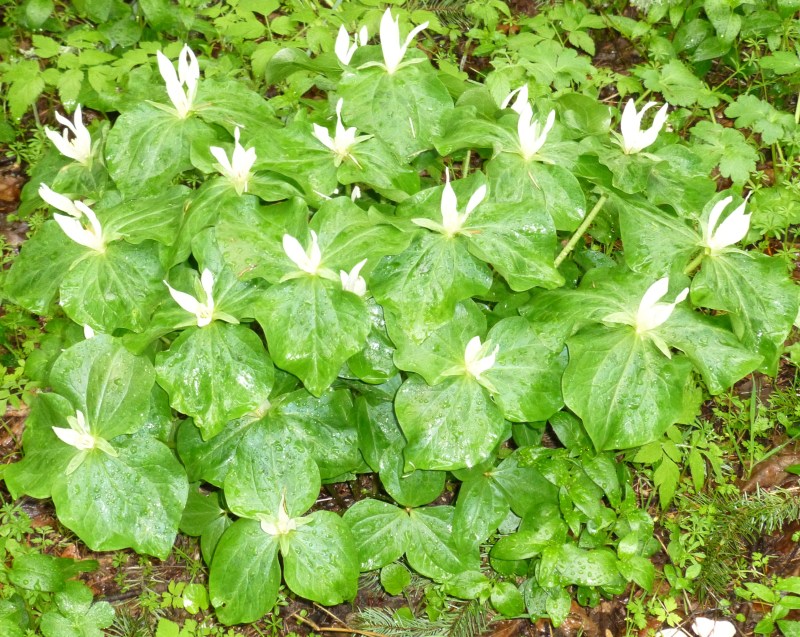
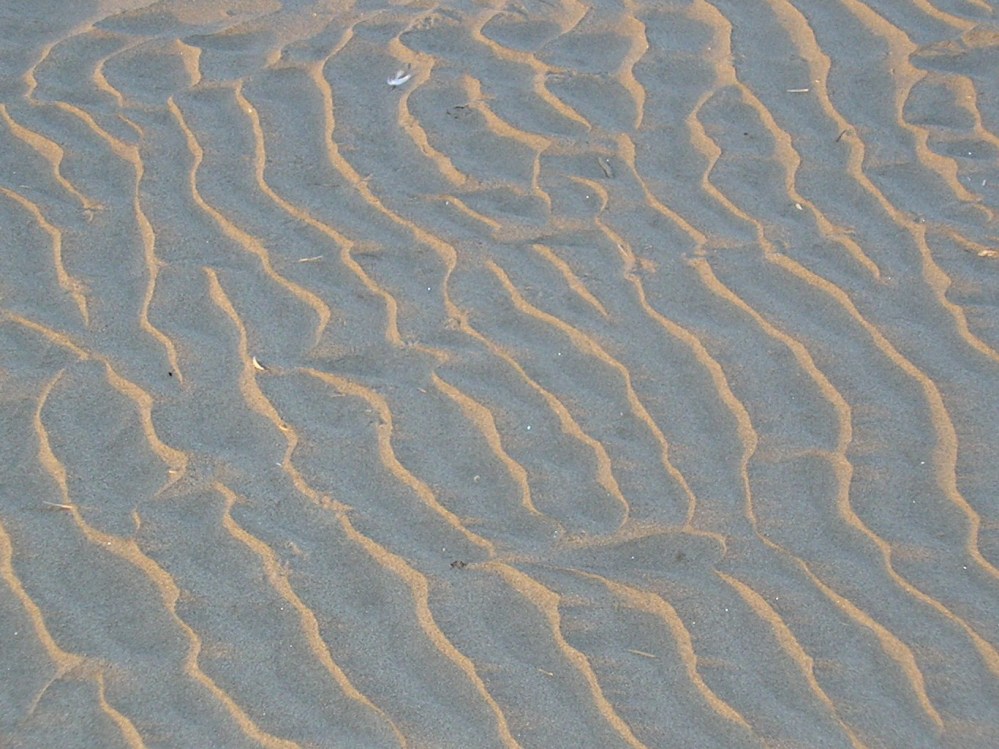
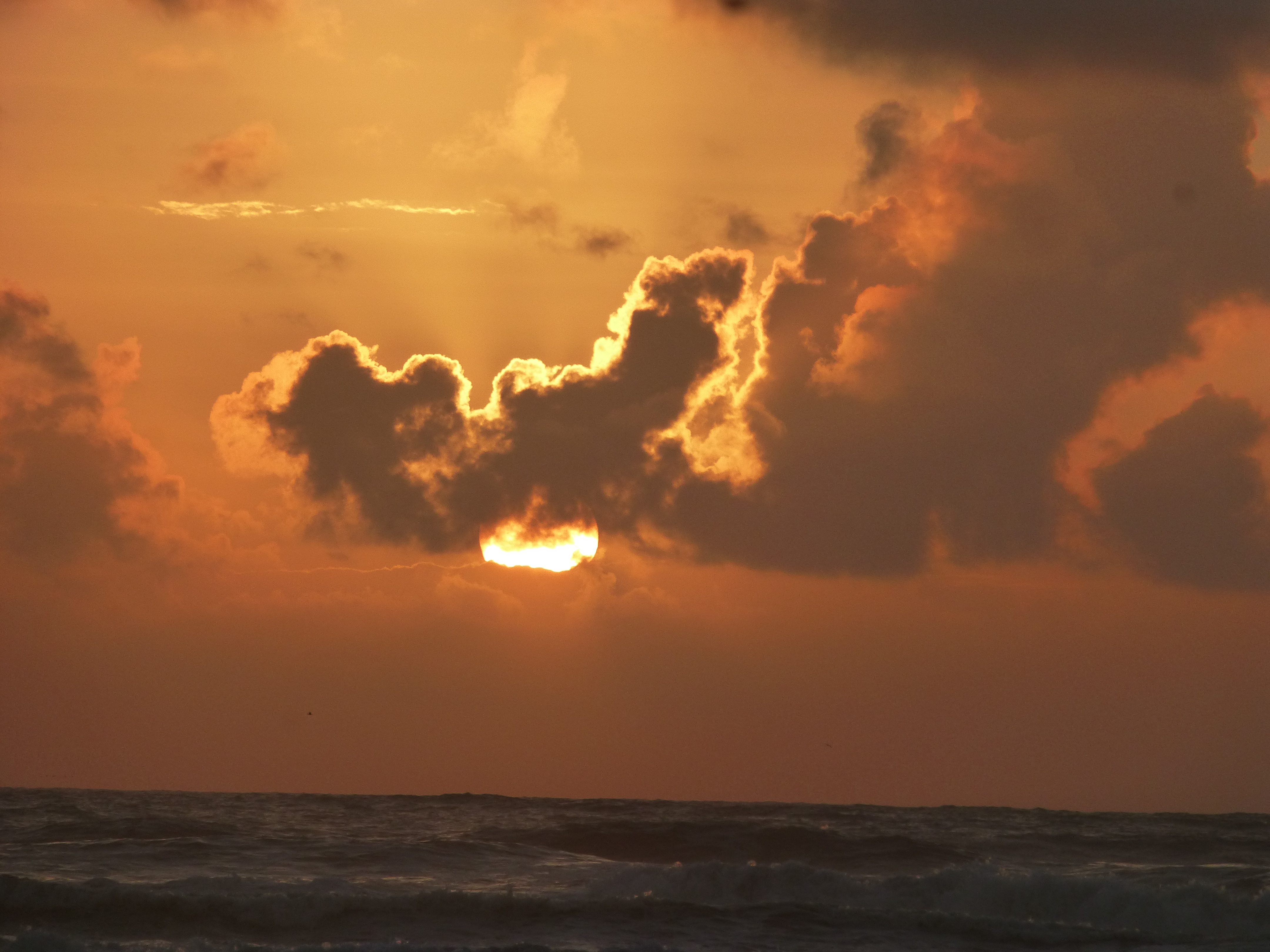


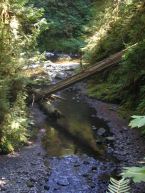





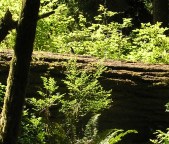








What extraordinary images you bring together here, accounts from earlier ages that sadden as they enlighten. I exult in the beauty and tranquility of those earlier times and grieve for their loss. Will our tormented earth ever recover?
A few years ago, traveling in New Zealand, I passed through a long valley carpeted with lupin, lupin in many gradations of color — blue, violet, pink, apricot. And elsewhere in New Zealand there were hlllsides ablaze with wild nasturtiums. It comforts me to remember these beautiful, peaceful places..
Hi Sylvia, thank you for your comment.
It is striking how the beauty of the natural world gives us courage and hope.
Knowing you as I do, I can respond to your question as to whether the earth will ever recover with the sense that it will be because of those like you who have dedicated their lives to protecting and recovering both justice and beauty.
I love these eloquent words of Linda Hogan’s (from Dwellings):
“The ears of the corn are listening and waiting. They want peace. The stalks of the corn want clean water, sun that is in its full clean shining. The leaves of the corn want good earth. The earth wants peace. The birds who eat the corn do not want poison. Nothing wants to suffer. The wind does not want to carry the stories of death.”
I am also thinking of Ellie Hillesum’s observation from a death camp during the Holocaust which would soon take her life. She observed how extraordinary it was that the lupines could bloom and two old women settle themselves for a chat in the sun in a camp in which the extreme of human cruelty was expressed. She concluded that our human mission in the worst of situations must be to act as a personal refuge for the beauty and decency that might otherwise be lost.
Your post also brings to mind the work of Lily Yeh, the artist who quit her job at the University of Pennsylvania to bring beauty (through sculpture and murals) to the most devastated areas of inner city Philadelphia. By bringing beauty there, she brought the community together: and in her decades of work, she has been the catalyst for reclaiming some 200 city blocks.
Beauty has an exquisite power if we let it speak to us–and your own life choices remind me of this.
It is sad to me that the messages that are sent down through the ages are now being ignored. With the epic of Gilgamesh, the storyteller believed it an important enough lesson to include in the story of their cultural heritage and someone believed it was important enough to record in writing so as to never be forgotten. Native Americans too have these stories of warning passed down through generations. These are stories of past mistakes that should not be repeated. Is it that we think that if we make these same mistakes the outcome will somehow be different? Or do we just no longer care about consequences?
You have likely heard this definition of insanity: doing the same thing and expecting different results.
You ask some questions that deserve some answers: We live in a culture which does not honor the past–and thus we do not regularly face our own mistakes, and thus we also do not learn from them.
It is about time, as you indicate, that we change this.
Assuming an ethical stance means understanding that our actions count–and thus we empower ourselves.
Once again, we live in a culture that values a few designated heroes and implies what the rest of us do does not count. I am glad that you feel differently, Tami!That difference is the first step of the change we need.
In many areas of the forest, humans have done so much work to develop cities that they have biologically killed the land where things can not grow on their own anymore. I was surprised that we know of a story 11,000 years ago where we see a powerful King destroying nature itself as we do to day. Human destruction is not new it has been going on for thousands of years evidently to attain a “better life”. Nature was doing fine on its own in their natural environment, but now man has disturbed it so much it doesn’t care to come back anymore. Man has depleted the land beyond the abilities for the land to rebound. We have taken a land of plenty and killed it to where it can not produce on its own, the land is biologically dead and people are to blame. A few people made choices that the rest of the people have to live with as well as nature. Now my generation and future generations will never get to see what paradise was once. I am thankful for theses stories so I can form pictures in my head but I am sad that people have done so much damage to natural ecological systems they don’t care to revive itself like in Gilgamesh. Like humans and all living things, nature has its own spirit. We need to learn from all this damage people have done to Mother Earth and get things back on track.
Hi Laura, thank you for your comment. There is much grief involved in the destructive changes we are making with respect to our environment (and certain kinds of societies have made historically). On the other hands, there are those who have worked in concert with land to strengthen its biodiversity. I am posting a page here of a draft of an article on Indigenous Peoples (https://holdenma.wordpress.com/culture-and-environment/indigenous-peoples/) I wrote for a forthcoming “green encyclopedia”. There is much to do, but perhaps this and other writings on this site will give you hope that humans can be a blessing (an anthropologist viewing indigenous eous California history put it) rather than a plague on the land.
Thanks for the link! It is so disheartening to envision such beauty and imagine what took place. It feels like my own beauty has been disregarded and pilleged and forgotten; and I suppose in essence that is exactly what is happening to women world-wide when the natural beauty of our planet is used up in this way.
Amazingly enough, though I yearn for that beauty around me all the time, I have an incredible desire to go to impoverished areas. I think I am searching for the feelings you described of the woman from the concentration camp. I feel as though I can have a greater positive impact on the world around me if I can truly see such hope and admiration, and love of beauty and life in the eyes of a people and a place that have been stripped of their rightful beauty. However, I do feel this is even possible in California, the Santa Cruz Mountains still spring up with wild strawberries, sweet old ladies still let wild skunks and other creatures into their houses and young girls can still go exploring along glistening stream beds. I remember when I was young, sneaking out of bed at night and feeling a huge escape and liberation just walking out to the little stream behind our house in the all but quiet night when the moon shone so bright that the water sparkled– I was always hopeful that some creatures might come and talk to me and give me wisdom and maybe they did because I was never afraid of being there, only of getting caught. I think there is hope, as long as people remember that we are in this together and the pointing of fingers transforms into individual acts of change. The most enduring change will come by example.
Thank you for sharing your personal experience in heeding the call of the natural world as a child. I concur with you on your point of hope: and my hope includes the wish that you find not only the beauty of nature that persists in daily life (in each of our bodies), but affirm your own beauty that you feel has been buried by cultural dynamics.
I recently attended a lecture on the importance of soil biology, and the fact that current agricultural processes are so counter-productive and destructive is maddening and terrifying! I don’t have a very deep understanding of it, but I have been learning the basics of how fungi works in an ecosystem as the natural detoxifiers and regulators of the system. The more I learn about mycellium, the more furious I become that we don’t honor and respect this form of life enough to allow fungus to help us fix our problems. Did you know that many forms of fungus actually thrive in fossil fuel-saturated pollution zones? They eat up this rich energy source, safely removing it from the environment, while at the same time encouraging biodiversity because fungus has so many symbiotic relationships with other life forms. Amazing! And yet, industry just keeps using more solvents and more salts, and no matter how optimistic we try to be, the truth is that the destruction is only speeding up. How many more oil spills and deserts will be added to the pile before we finally stop all this insanity?
I think your last question is the question of the age, Rachel. I do think that there is more destruction but also more and more people working to honor and protect nature’s resilience. The more that is destroyed, the more we must be creative in response– a challenge that I know can seem overwhelming at times.
The soil fungus is a marvelous thing: I love the feel and smell of those little white threads everywhere whenever I work in the dirt in my yard. I also understand that live soil renders millions of dangerous (to humans) bacteria like e coli neutral at an amazing rate. It is a beautiful soil-honoring custom of peasant farmers in Eastern Europe (though I don’t know how many do it anymore) to kneel and kiss the soil each morning. I think we must know it somewhere in our heart and bones when we walk on live soil as opposed to chemically-created deserts or cement.
Keep feeling deeply and learning and acting Rachel. Thank you on behalf of all of us, of current and future generations who share our earth.
It is true what they say, that “those who do not understand history are likely to repeat it,” and this article is a perfect example of this saying in action. It is all too often that when plans so bad people say “well, how was I suppose to know that would happen,” when we only need only look to the past to find answers for the future, such as the story of Gilgamesh. If more people knew and understood what happened to Gilgamesh, they would be doing things like draining resources from their land faster then they can be replaced.
I agree entirely with your two quotations. I feel that this sort of tragedy happens all too often, and when destruction occurs, excuses follow.
Too often true, Chamae.
It is stories like these that always make me wonder if people on our earth will ever learn from their mistakes. How many times will history repeat itself and how many beautiful things that our earth has been blessed with will have to suffer and eventually cease to exist altogether? I really hope that the amazing things that this earth holds will still be around when my children and their children inhabit this planet, but stories like these make me feel as though places like the ones described in this article will not be around forever.
Hi Megan, there is certainly grief here, but my hope is that there is also, as you indicate, the ability to learn from the past. And to honor what you rightly call the “amazing” things this earth still holds. I think it is certainly true that if we don’t change our ways, such things will not be around for our children’s children to enjoy. That makes it all the more imperative that we act on behalf of that which we treasure. Thanks for your comment.
What a nice article and so many thoughtful replies. I think we all echo the sadness as well as the hope. We have to be positive, and I was especially moved by Madronna’s response to Sylvia, about the flowers and women sitting for a chat in the concentration camp. We have to carry that beauty and positivity, it is our responsibility or it dies in us and in the world. The force that underlies life continues, even as large, destructive forces try to eliminate it. It is our privilege to carry it. It all seems to come down to honor and respect for everything especially respecting ourselves and realizing that everything we say and do creates a ripple effect, good or bad. We have no choice but to be part of the good and the solution, and unfortunately that means we have to look at what is really going on. One of the saddest things for me is to see youth turning away from education and taking to drugs and the streets, before they ever have a chance to understand who they are, because their parents are also lost to themselves and the culture does nothing to support either. Just felt like saying that, but acknowledgment is the first step I guess.
Hi Lesley, acknowledgment is the first step–and it takes a whole community to give these kids a place in our world, not just parents who cannot always do it in isolation. Thank you for the warm response about the beauty and positivity that leads us into enacting our visions for a better world in the face of so much destruction and sadness. Sylvia is an amazing woman!
As Hegel once put, humans can be the best of creatures BECAUSE we can be the worst. We are creature of choice and those choices that make the difference between the one and the other. I do think, as well, that the beauty of the natural world calls us to our own higher selves. And sometimes I sense a fear of this beauty and what it calls us to on the part of certain humans who would therefore rather ravage it.
Sometimes it is much more difficult for me to “picture” how things were, from an environmental perspective, and how they are today without specific data involved. Beginning the article with a “snap shot” photo description of Iran today and it being a paradise much earlier, really hit home with me. This class continues to open my eyes surrounding the significance of all of our taking action now.
Good article,
Paul
Thanks, Paul! I hope that we are able to become a culture with wisdom– one of my own definitions being the ability to learn from the past. A Chehalis grandmother once told me that eveyone who relayed such information should tell it “as if you were right there, seeing it happen”. I like that advice.
Its scary to think what how this world will change 10, 20, 100 years from now. The more populated this earth becomes the more damage humans seem to cause. I lived in the same house for 21 years and now when I think of how it has my small town has changed over the years it blows my mind. What use to be parks and fields are now replaced with Wall Mart and sonic. It seems like every time I come home a new building is being built. 11,000 year ago Iran was a paradise and now it’s anything but that. My hope is that humans will take a look around an realize what an amazing place world we live in and start to change their consumer habits to keep its beauty for our children and grandchildren to see.
Hi Krissie, it is scary to contemplate the future if we keep going in the direction we are currently heading. Wouldn’t it be great NOT to repeat the mistakes of history that began so many years ago and think about how the changes in 10, 20 or 100 years would be in the RIGHT direction? Any ideas about what it might take to make our future something to look forward to rather than to be frightened of?
Anthropologic history is often ignored with disasterous results. The negligence of commonality and individual defiance towards seemingly unique goals with unique solutions stifles growth within human civilizations. The communities which ignore the experience of past generations are cursed to relive the toils and tribulations which their forefathers worked to ascend. However, the peoples who revere the human connection in past, present, and future generations are privileged to deeper comprehension and management of their lives and lineage.
Reinventing the wheel is a waste of time. Americas’ environmental degradation, health care mess, and economic woes are all phenomenons seen at different times by different peoples of the world. However, the recognition of tested solutions found elsewhere in Europe or the East jeapordizes our pride in innovation and domination. How can such a powerful country be advised by “weaker” nations? It’s like my private husband telling his lieutenant how to do things; unacceptable in American society. However, does rank really define human genius? No, absolutely not. In fact, the status of other nations’ failure via depleted resouces, which leads to national instability, is paramount knowledge in order to protect Americas bountiful resource base with wise lessons of what not to do.
I think it would be a nice addition to any cirriculum to include an Environmental World History course to perpetuate awareness of the natural interactions experienced by all peoples of the world over time. PHL 443 is an enlightening course along those same lines with comparison between indigenous and modernistic views. However, the current western mindset has perpetuated poor decisionmaking for some time and more awareness of the cause and effect relationships between the environment, economics, and politics would do some good in America.
Hi Jenna, thanks for your comment. I would certainly welcome an alertness to the intersection between culture/worldview and environmental results in historical perspective.
I have heard a great deal about salination of water tables through irrigation systems. Jared Diamond spends a great deal of time discussing it in his book Collapse. He notes that Australia in particular is suffering from this system. I don’t doubt that it is happening in the central California as well. I’m a curious though, how long does it take to undo these kinds of effects? It seems like even 4,000 years in the case of what used to be the fertile crescent hasn’t been enough. Are their modern technologies we can use to reverse these effects? I mean, I’d rather not wait 5,000 years or more for the Central Valley to recover. and I’m sure most Americans wouldn’t either. Are we passed the tipping point on our way to collapse down there?
Hi Mark– a very thoughtful question to which I do not know the answer. What I DO know is that the more humus (organic matter) in the soil, the more the soil can repair itself–and the less uptake of toxic chemicals in modern farms and gardens. Soils in the Central Valley that are biologically dead suffer from acid burnout because of chemical fertilizer usage–so that things can ONLY grow at all and take in nutrients through chemical fertilizers. So it is an addictive process, good for the chemical company profits. There are, however, some grape growers in the region who have gone organic (especially difficult with more fragile seedless hybrids) and brought the soils back to life (takes at least several years) through the introduction of organic humus. Check out the article (if you haven’t already) on the Green Revolution–Whoops! here (about Bangladesh). A very interesting thing about the re-introduction of these older farming methods is that they recharged the water table so that irrigation was not necessary in some of these rice paddies. Similarly, some Pueblo farmers in the American southwest have practiced dryland farming of corn for hundreds, perhaps thousands of years, without
One of the reasons that the soils in the Middle East have not recovered is that they often remain denuded; the topsoil is almost entirely gone in many places, with just rock surfaces with which to terrace olive and fig trees that can hold onto the slopes. In this context I experienced an amazing traditional (and contrasting) Arab orchard on perhaps one half an acre that was lush with the inter-cropping of several grafted fruit trees and a vegetable garden (this was on the Mount of Olives). This was an oasis not created by natural variance but by continued traditional care for the land.
I’m not too fond of Diamond’s first books, as they seem to imply that if humans wind up in a particular landscape, it leads to social structures (and power structures) of various types– with no accommodation for human choice or responsibility in matter. However, cultures with entirely different social structures may survive in the same ecological framework (some examples in my page on Indigenous Peoples here). Jared seems to have come round to realizing how important human choice is in Collapse , which I find more nuanced–so I am glad you are reading that one.
I know that I’m not alone in thinking just how wonderfully amazing it would be to see the land as it once was and to see it as those famed naturalists saw it. It would probably enduce euphoria and even some tears. It makes me think of a natural version of Willy Wonka’s Chocolate Factory witha river of salmon and bounty aplenty.
If anyone has ever been deeper into the redwood forests, you will know the feeling of beeing minuscule and insignificant. It was amazing to see some of nature as John Muir had.
I can only imagine what a sea of camas would look like. I have seen smaller fields thick with them and it’s amazing. It is soo easy to undo and destroy the beauty of nature. It’s a shame that there wasn’t more foresight during the developement of this country. Ofcourse, hindsight is always 20/20. However, this doesn’t mean that we cannot learn from our mistakes.
Thanks for your thoughtful and feeling response here, Chris. I do think the true gauge of wisdom is being able to learn from our mistakes-and certainly, care for such wilderness landscapes where they still remain for the sake of those who come after us.
It’s sad to me that we have evolved to be so disconnected with the natural world. How did it come to be that we could cut down forests without thinking of how it may affect everything else around (including humans). Humans can be so near-sighted in this way. Only the people who have managed to maintain a connection to the land, water, animals and all other earth inhabitants, i.e. the indigenous people, seem to have the ability to see for many generations. Luckily, there are more and more people these days returning to indigenous wisdom and, in turn, remembering the interconnectedness of all things. It will be this movement that will encourage the healing of the planet through forward thinking.
We have an incredible opportunity to learn from the mistakes of our distant past and recent past (as Matt points out above). We are poised on a tipping point for humanity and the survival of life as we know it. I only hope that we can sustain the vision of the importance of reconnection before it is too late!
Hi Dazzia, I very much like your balance in this comment. Yes, we have some grave environmental issues to face– but we have the opportunity to learn from our past and reconnect with the natural world before–as you point out– it is too late.
My family has a cabin on a lake on the Utah and Idaho border called Bear Lake. It is a beautiful freshwater lake formed from an earthquake creating a deep valley which was filled by the bear river at the north end. The lake contains dissolved limestone which gives the water a very unique and breathtaking turquoise color. The ecosystem here is abundant, there is an estuary marsh for the diverse bird life which includes fresh-water pelicans. There is a breed of fish known as the sisco which is found only in this lake. The lake is surrounded by two mountain ranges and to me has always been a paradise. However it is quickly becoming a popular tourist attraction, something that the local crowd has been fearing for decades. Condo and other developments are cropping up on the foothills of the surrounding mountains, the first chain businesses starting appearing a few years ago. My family feels a huge sense of loss at the urbanization of this paradise valley that we are so blessed to know in a sacred manner. I feel like the urbanization we witnessed in out valley is of a similar loss to those of the lush paradise in IRan and what is starting to occur in Napa Valley. It is truly a heart-wrenching occasion.
Hi Anna, I am sorry that you are experiencing this loss– it is strange and sad thing that those things that attract us to a place (the setting you describe) might cause some to develop it beyond recognition. Losing a landscape that is sacred to you is the cause for grief, indeed. If the fish species exists only in that lake, you would think that might an occasion for protecting it. I am betting that your family is not the only ones feeling sad about this change– I am wondering if there is a way to unite with others to address issues of concern that you share.
And how would you like this to the dynamics of Gilgamesh? Can you say a bit more about this? Thanks for your comment!
I was unaware that thousands of years ago the middle east used to be a paradise. It is hard to picture the desert land as anything else. It is scary to think that this may be what other areas of the currently forest infested lands may be in a few more thousand years. If destruction of the rainforests and ecological productive lands is not stopped soon, it is possible that in thousands of years, the entire world will take on a desert like quality. I cannot picture a world without the beauty that I have seen and found in the natural world. Though deserts may have their natural beauty, the reason that I find this world to be so fascinating, is because of the diversity of the land. It would be devestating if the world continued on its destructive path towards all vegetation, and lost the beauty of diversity in the process.
Hi Katie, thanks for reminding us of the beauty of deserts in their own right. I think that deserts such as the American southwest, where plant and animal species have adapted for thousands of years (until recent human activity) are beautiful–but deserts created (such as the creeping Sahara) through human actions are alarming to me. And deserts created by logging a landscape two dozen times over certainly have something to teach us about human limits– and the repercussions of our actions!
Oy, tales of defeating the forest. Though it makes sense to clear forest areas for specific purposes, such as intentional burning that makes forest fires less damaging later, the notion of conquering a forest just seems silly. “I slaughtered the great plant enemy!” haha ridiculous. I think people may be afraid of the forest to some extent if they are raised in civilizations away from it and never exposed. What they don’t fully comprehend is that without the forest that so many systems thrive in, we lose valuable life. It is not merely trees that die through clear-cutting, and we don’t know what affects the destruction of forests will have in the long-run. The worldview of domination is evident here, with people considering themselves above plant species and therefore in control of them and not dependent upon them. If we have anything to conquer it is this unhealthy worldview.
Hi Karen, I think your send up of “slaughtering” the forest is apt. Just how brave are we to attack lives that cannot even run from us? You also point out some of the things we lose from such an attitude–not to mention the energy that might allow us to attack something more relevant and beneficial– such as our own ignorance. Thanks for your comment.
It is amazing to me that history is constinently repeating itself. We have thousand of years of history that is the same. A civilization starts, peaks, and thru its own means destroy itself. From the ancient world to now we are doing the same things. Will we ever learn?
That is a key question, Renae.
It is scary to think that all these historical lessons are available to us, however, we don’t seem to be taking the opportunity to learn from them as well as we could. The stories of various countries around the world tell us that if we don’t take care of the environment properly, the many species of animals and plants will abandon us and the land that will remain upon their departure will not be a suitable land for us to live on. There is the example of Palestine that you mentioned in one of your essays, where due to deforestation the topsoil was washed into the sea. As you mentioned previously, it takes 40 years to create 1 cm of soil – which I didn’t know and I was quite shocked by this information. Is it correct? Now there are other examples – that of Iran and Central California Valley. I think one of the lessons that we can learn from these stories is that no matter what technology we come up with, technology is not a substitute for treating the environment with care, respect and common sense and using the natural resources (including the land) in moderation. When thinking about all the irrigation works, clear cutting, industrial farming, using of chemical fertilizers and pesticides all around the world, I am thinking that we should all read the tale of Gilgamesh. When reading your article and considering the consequences of our approach to land, it also made me think that sometimes in the future humans really will have to apply the principles investigated by Gaviotas, because most of humans will probably live in hostile deserts with no productive soils.
This a thoughtful response, Iveta–and not so far off a prediction if we continue to squander our precious resource of soil: that statistic is taken from a book on the natural history of New York City, which notes that the soils there were not “particularly deep, having had only 18,000 years to form”! (Mannnahatta I have an advance copy of this book published this year, but it should be out and available now) The one cm/forty years is an average in temperate climates. It is a great tragedy that the kind of plowing we are doing in the midwest (where we found topsoils several feet deep) is causing it to blow up in dust and eventually be carried to river deltas (largely the Mississippi) where it creates a “dead zone” of soil and agricultural chemicals in the sea.
We certainly need to get smarter and soon! But the good news is that facing these sad consequences of our past actions can help to do that.
As I was reading this I could invision the beautiful fields of wild flowers covering hill sides and it makes me think about when I would drive into the country side during the spring as a young child with my family and to look at the hill sides and see the vivid colors of the flowers. It is hard to believe that if I go to those areas now it will all be artificial fertilizers in the ground harvesting acres of crops that would not naturally grow there.
It is sad, Jayne. The good news is that some local farmers–such as organic grape growers– are working to change that, though sometimes the change takes years in “dead” soil.
It seems that we can never just be content with what we have in the natural world and live in a way that we coexist with nature. Rather we take take take and expect nature to just give give give. As we can see this isn’t the case and as we continue to use up the natural world, it continues to disappear bit by bit. I feel that we are beginning to realize this more and more and hopefully will take the correct measure to ensure that both people and nature can benefit.
Indeed, Travis, this is hopeful–perhaps we might even begin to learn from history!
I feel terrible for Thomas Mayfield to know that his dad left him with strangers and went to look for gold. He apparently got a better upbringing out of it.
Perhaps the story of the father forsaking his son, a father’s future, for possible wealth is also a metaphor for humans that forsake their surrounding environment, a civilization’s future, for short term gains.
Interesting perspective, Dana. Also forsaking the natural world seems to me more like forsaking an ancestor than a child.
I had no idea that mass irrigation could salinate water tables and completely ruin an entire land for future agriculture use. Like much of the middle east, the rich plains of California could one day become desert as a result of industrial monocropping. I am encouraged, however, by the story of Gaviotas. Perhaps someday we can finds ways to reverse that process and reintroduce the species that made up the gold fields of Napa Valley.
A hopeful point, Morgan. I just heard that new salt cairns exist all over the world from misuse of irrigation, we really need responses like those of the New Agricultural Movement in Bangladesh to recharge and purify water tables.
This article and the story of Gilgamesh show me the more that people want to remove themselves from nature the more willing nature is to oblige. Advancements such as irrigation and monocropping allow us to have a sense of control over nature. One way this is demonstrated is through our population size. Each person born represents a certain amount of resources that will be required from nature. Instead of relying on ways to bend the rules of nature and get more production with less effort such as by monocropping we must learn to accept certain natural limits. Nature can be a powerful ally as with the indigenous people of North America and the beautiful landscapes they created by living in harmony with nature, nature can also be a powerful enemy as with the people of Iran 11,000 years ago and Gilgamesh who chose to conquer the forest.
I think it is a dualistic view that sees or treat nature either as an enemy or something to be controlled, Brandon. I think we cannot escape the fact that we are nature–and one would think we would have learned these lessons– with respect to the issue you raised in your last comment, raising the carrying capacity of the land through increased production is self-defeating if we are destroying the land’s capacity to produce in the process.
Much like what this chapter has been preaching, Western society is very disconnected from the natural world. We have no problem clear cutting forests and ruining natural life for our own pleasures and personal gains.
We need to look at history’s past and learn from their mistakes, so that we may better our futures. This is most important as we are at the breaking point for human population and are running low on resources.
We won’t be able to return the land to what it once was for quite sometime, and I’m sad that I’ll only hear about such beauty from stories and books, but we need to start making the change. Inspiring our society to work together and change our worldview is the first step.
Thanks for your perspective, Lincoln: it is ironic indeed that some “magic bullet” mentality preaches that we must use the very technology that is destroying our land to feed our burgeoning population. Your perspective is a more rational one: in the face of burgeoning population and environmental degradation, we cannot afford any technology that further degrades the ability of the land to sustain us.
Let us hope that in your lifetime you will be able to see examples of such beauty in real life rather than merely in books: I think some community gardens are beautiful–as is the work of those like Lily Yeh.
I have never been to the middle east so in my ignorance I assumed that the entire region was a natural variation of the Sahara desert. Of course, I have heard of the Cedars of Lebanon but never really wondered about their actual existence. It’s difficult to imagine a forested area there. But at least my ignorance is of an area half way around the world. It is truly shocking to learn that similar processes exist in the Central California Valley, right in my own backyard.
Thoughtful response, Taylor. Actually, Palestine turns very green even today in the spring rains. Though it is sad to learn about what has been lost perhaps this might also give us a vision of what to reclaim.
I really had no idea these devastating effects were happening to crops so close to home. This really makes you realize how ‘real’ it is and that it really is a reality that we are not taking care of our resources, but instead stripping them dry, to a state that cannot be reconciled. We are certainly, as a people, not acting with the fore-caring as discussed in the other lesson as far as our crops and forests are concerned. We are not respecting the beauty and necessity of the natural world, but instead are taking it for granted, and certainly not heeding the tales of the Choinumni people, who had the foresight we are currently lacking.
I did enjoy the imagery of the San Joaquin Valley presented by Thomas Mayfield. I have never visited this region, but apparently I need to make it a priority now.
Of course, it is nothing at all like it was in Mayfield’s day, Megan. I hope a visit doesn’t dissapoint you. And it is about time we learned lessons of several thousand years ago that are so recently repeated.
Truly history coming full circle. Will all that is left of our society be stone buildings and monuments? One wonders if we will see the error in our ways before there is no way to heal the environment, or have we already passed that point?
I have always been a fan of ancient tales and epic poems. I am glad there is a link to the original Gilgamesh story, I am looking forward to reading it. It is interesting that these ancient stories have main themes that can still be connected to current events and problems like chemical contamination of land, or salination tables. We can still learn from Gilgamesh today!
It’s so disappointing that, with all the historical (and mythological) lessons available, we still have not really learned how harming our environment actually harms ourselves. There are far too many stories like these, warning of the danger inherent in human arrogance regarding the natural world, and our attempts to separate ourselves from it and to dominate it. Because we are a part of nature (whether we want to be or not) we cannot harm or destroy the environment without harming or destroying ourselves in equal measure. How many more stories of this sort do we really need before we internalize that lesson?
You are absolutely right, Crystal: time to learn such lessons. Though to learn of the dangers of arrogance we must step away from it–and understand, as your indicate, our interdependence with other lives in this world.
I guess the saying “history repeats itself” really rings true. It is disappointing that we can’t seem to learn from our past mistakes. In the past century it has only seemed to have gotten worse as human superiority over nature with the aid of technology becomes the flawed norm.
We cannot deny that certain human acts of superiority and destructive consequences flowing from them seem to have gotten worse, Breannon. I also think that some of this is due to the fact that we are finally growing aware of such consequences–and there are also movements for change. Witness your own knowledge and choices!
Crystal,
I so agree that we humans desperately need to learn when we harm our environment we harm ourselves. I think there is a growing awareness of the interconnectedness in the West, but we will face a huge push back in the next years, as those who gain monetarily from despair and false science try to gain a foothold in environmental decision-making.
I agree that we are on the edge of a transformation–and we will either be going to change our ways for the better or face dire consequences indeed. We are the ones who create our society: we should never let any profit from “despair and false” science” as some do now. That is why, as you just said, we should be voting– and working each day to make/live our vision.
Thanks for your comment.
It is sad to historical accounts like this. I’m sure many people will justify these destructive practices for the sake of so-called “development”. This development more often refers to economic development. For some reason all other forms of development seem to fall to the wayside; we never hear any mention of social or cultural development.
“Clear cutting and industrial farming are not new things on the human horizon.” I found it interesting in Jared Diamond’s, Collapse, that clear cutting was present in the fall of all the ancient societies he reviewed. What makes us think that our society will be exempt from the damaging effects of clear cutting?
Thanks for reminding us about the processes of history that we should be learning from, Breannon. I think denial is the only thing that makes us think we alone will be exempt from the consequences of our actions.
I believe these tales were recorded to warn the children of the future, us. That is why the “folk” tales of indigenous peoples are so precious and valuable. Like Gilgamesh we are once again at a crossroads of resources and arrogance and once again we have choices. How will we fare this time? When we have the knowledge and technological capacity to recreate “paradise” for all on Earth but the technology is going to war and destruction how do we explain to our children and our children’s children that we chose to close our eyes?
Nice insight that our ancestors left these lessons for us in folk tales– the ability to pass on traditions (and the lessons of our experience) has given humans a survival edge in the past. But we are not going in that direction if we ignore the lessons of the past and repeat the same mistakes– only effecting a larger area!
Thanks for your comment, Maureen.
I really enjoyed this article and find it to be a real eye opener. There was a time when our world was fillled with plentiful numbers of flowers, trees, plants, clean air, water, land and wildlife. Overtime, however, due to a dominant human mindset that thinks we have a right to do what we like nature and the living things on this earth. Due to this type of thinking we are basically destroying our own paradise, as well as, our level of sustainabilty, and abundance. We are turning beautiful landscaped land into barren desserts that are biologically dead. Life is not longer fit to inhabit these lands. Someone says that we haven’t learned from past mistakes, I have to say, I agree.
A great tragedy that, as you say, we are “destroying our own paradise”, Elizabeth. And if the contemporary industrial worldview licenses us to do this, the remedy is to think differently. We can (we must) change ourselves if we hope to have a vital world for our children to inherit. Thanks for your comment.
The begining description of this once upon a time paradise sounds like such a beautiful sight, and I only wish we were fortunate enough to see it.
Another thing that I really enjoyed, was the idea that the pioneers, even in the hardest of times were able to “stop in their tracks” and enjoy the beauty that surrounded them. The idea of attaching the flowers to the carts and horses only made me smile because I imagine I would want to do the same thing!
The visual imagery of cutting down trees, and it being more than the use of axes and chainsaws was very powerful as well. In those paragraphs I actually was imagining the feelings of those that care so deeply about that setting and how emotionally it must have felt that those axes and chainsaws were in a sense, cutting them down as people.
Thanks for your vivid comment, Chamae. I can see why you like the aspect of storytelling here! Perhaps you will have a chance to retell some of these stories.
I had no idea that such devestating things were happening so close to home. This makes me realize how ‘real’ it is and how people are not taking care of our natural resources. It is sad to me that people are ignoring the messages that have been relayed from previous generations. It is interesting how history is constantly repeating itself; people are doing the same things and expecting different results. Common sense says thats not possible. In order to achieve something different you have to act and behave differently. It makes me wonder if people will ever learn from their mistakes.
We are indeed repeating our historical mistakes when we refuse to learn from them, Courtney. Common sense does not seem to combat denial: which is what doing the same thing and expecting different results consists of. Thanks for your comment.
Before I read this had I only heard of the name Gilgamesh. I knew that it was an old myth that was told in what was Mesopotamia or some place near there. I did not know what kind of story it was. I did not expect it to be about the king and the forest. The story of Gilgamesh seems to be more about the corruption when it comes to controlling and destroying nature. Gilgamesh was over powered and wanted more than just what his kingdom had to offer, so he tried to destroy the forest. What really gets me is the death of his friend Enkidu. The article said that he fell ill and died. Would he have died if the forest were there? Did Enkidu know something about the forest that could have help him or Gilgamesh. It seems odd that this story was kept in stone out of the stories that a culture can generate. Gilgmesh, who is the main character is a pretty bad person. Not really caring for others other than himself. However when he meets Enkidu he becomes friends with him but destroys the forest that he came from. It seems like there is a major lesson in the story, which is nature is a friend until man’s urge for power overcomes, himself and destroys nature. Then all that is left is sadness
Hi Javier, I very much like your retelling of this story with the lessons here highlighted.
Last week, in Animal, Vegetable, Mineral by Carol Sanchez, she discussed the disconnection colonizers may feel to the land they have colonized. The lack of an ancestral connection to the land may make people more comfortable exploiting and destroying that land. I thought of that when I read this essay, because both accounts are of colonizers who destroy the landscape they colonize. It makes me think of Christmas morning, the joy of getting to open new toys and then hours later the broken or forgotten toys littering the house. There seems to be a sense of entitlement to use up these places that people colonize, like they were placed there for them to receive and use as they like. I think a disconnect from the history of the place is at the root of this misconception. The colonizers of these places were unfamiliar with the seasonal cycles that sustained these paradises, the relationships between the animals and people who lived there that made these places so wonderful. It is easy to imagine that you can take whatever you want from a place that has appeared out of thin air. When you have lived and worked in a place for generations you have a connection to how it got the way it is and how to sustain it. Carol Sanchez encouraged all of us to research the history of the places we occupy, to connect with them and understand the sacredness and legacy of the land we walk on.
When I read stories like that of Gilgamesh and that of Napa Valley and the San Joaquin Valley I feel an incredible sense of loss. I regularly travel to Northern California and was just recently in Sonoma. On the drive over from San Francisco to American Canyon where I was staying, I was struck by the bland monocropped land that stretched out before me for hours. I did not know what it was like in the historical past; a primordial Eden. How terrible that something this beautiful could be tilled up and destroyed. What I would have given to see such a thing. I was born two hundred years too late.
The same thing happened to my native Arizona by ranchers who did not understand the ecology of Arizona and overgrazed it to the point of no return. The land we see today is a mere shadow of the place it once was with fertile valleys, grass as tall as your shoulders, regularly flooded river plains, and overflowing with life. Like the Willamette Valley, it too was filled with beavers who helped the desert blossom like a rose. It is no longer the place of the Hohokam or Anasazi… What will happen to it when the ever growing population of Phoenix when it over consumes the water resources and the land dries up? Will it be like Iran- a desolate and sterile wilderness? I mourn that day.
Good question about the Southwest. The water table has been draw down by the growing population (and activities such as irrigation of golf courses) since the 1950s– and without water, the human population is not going to survive there.
While I have traveled through California, I have not traveled in Arizona and until I read your comment I had no idea about the over grazing that is taking place there. It is scary to think about what will happen when the land dries up…and not just for AZ, but for a bunch of other places too.
Yes, it is scary when we forget that water is essential to life and limited–and behave with such forgetting. The vast aquifer of ground water in the Southwest (which allowed indigenous peoples like the Pueblos to do “dryland farming” for hundreds of years has been consistently being drawn down by modern human activities since the 1950s.
Thank you for sharing your personal expereiences. It is always good to hear another’s point of view in regards to the change of our lands. I thin it is important that we all take notice as to how our actions are changing the enviorment so that we can prevent further damanages and to lengeth our lives as well.
Nice point, Kayla.
Nature certainly holds a particular kind of beauty that isn’t found in man-made objects. But, as was discussed in this essay, I think one of the most beautiful things about it is its ability to renew itself and to nourish and nurture all that is a part of it. To me, that is not only beautiful, but miraculous!
As with all things, I think there’s a balance. I believe that the earth was created for people, and that its resources are there for us to use, but I also believe that we have a responsibility to care for the earth and all that is in it. So, while many of the images portrayed in this essay are beautiful and evocative, I think we should be careful not to get so carried away with the beauty of nature that we refuse to touch it. Using the resources of the earth is a good thing: that’s what they’re there for. However, overusing and abusing them until we exhaust those resources and take away the earth’s ability to renew itself and continue nurturing us and all other creatures, is wrong.
I appreciate that this essay points out the beauty of earth in encouraging us to care for it properly, but also points out the dangers of not doing so. If we can combine a respect and appreciation for the earth along with wisdom and knowledge, we will have a much better balance and a much better ability to care for the earth and allow it to care for us in return.
Thanks for your comment.
Can you give an example of a case where you feel we might get “so carried away with the beauty of nature that we refuse to touch it”? Is not touching the beauty of nature a potential guide as to how to treat it with respect? I wonder what kind of ethics flows from the idea that nature (is that our own nature as well) is put there for us to use? Is this not a dangerously dominating ethic.
How do you see the necessary balance you speak of and the potential abuse modeled as a lesson in the tale of Gilgamesh (and the problems with particular mindsets’ leading to particular ways of treating the natural world that humans have too often fallen into in history)?
When I said ‘touching’ I probably should have used the word ‘changing.’ What I meant was when people take the idea that nature isn’t something we should use at all for fear that we will somehow spoil it. Certainly I believe that touching nature is a way for us to learn about it and understand the importance of taking care of it. But I also think that in order for us to use the resources that are provided by the earth, we usually have to change it to some extent. It isn’t practical for all of us to scavenge berries and roots from the land. We plant gardens, raise animals, build homes. All of that comes from nature, but it isn’t pure, untouched nature. So we’re changing nature, but at the same time we’re able to appreciate and take care of it because we realize that we depend on it. I don’t know if that makes sense, but hopefully it helps to clarify my thinking on that point.
As far as the ethics behind nature being put there for us to use, I think we’ll have to agree to disagree on that point. One of the key ideas behind ecofeminism, as I understand it, is that people are not superior to nature, but I disagree. This stems from my belief that people are children of God, and that nature (animals, plants, the earth, the stars, etc.) is the creation of God. I believe that the earth and all that is in it was created for our use. Not for overuse, abuse, or hoarding, but respectful, responsible, grateful use. So I definitely believe that nature is an incredible gift and that we have a responsibility to care for it, but I also believe that we are meant to have dominion over it, as it says in Genesis, and to exercise that dominion wisely.
I’m not sure I understand your last question, so if my answer isn’t relevant, I apologize. In the story of Gilgamesh, I think he destroys the balance of nature by ‘conquering’ the forest. While I think the earth is to be used, I don’t think it is to be conquered. Conquering displays a mindset of force, abuse of power, and greed. As can be seen in the story of Gilgamesh, he didn’t have any idea of real use in mind, but conquered the forest as a show of power, using its resources for himself alone, and for things which he didn’t really need. But balance could have been reached if he had been willing to understand nature and had used it in such a way that it could continue to flourish and replenish itself, and I think that’s the kind of attitude we need to have towards nature. We need to understand it, respect and appreciate it, and use it in such a way that it can continue to renew itself.
Hi Samantha, thanks for your follow up to my questions. I appreciate the clarification on your examples of changing the natural world. Your idea that we should not be misled by the beauty of nature seemed to me to be too easily read to mean that we sometimes must destroy nature’s beauty– no matter how we feel about this.
There is much info on this cite that concurs with you that humans have always effected the natural world: the issue is how they have done this– with a domineering attitude, or with respect, appreciation and gratitude. I do think that the idea that we somehow have a license to “use” the world as we see fit is problematic, given the historical consequences of those who have acted in line with this view.
You are right that you have a different view from that of many indigenous peoples and ecofeminists — as well as many Christians– who see danger in our placing ourselves “above” nature. One point for me is whether the sense that we are children of God indicates privilege and license rather than responsibility. Historically, it has happened again and again that those self-termed “civilizations” (as Gilgamesh’s own) who place themselves “above” other lives express a dangerous and ultimately self-destructive arrogance. There is a reason why pride is first of the Seven Deadly Sins, yes? i think that there is another issue here: in separating ourselves from Creation, are we not also separating ourselves from God. When Jesus said God takes care of us as he does the birds of the air, this seems to me to express the way in which we are embedded in creation as the family of life.
Your response about Gilgamesh is what I was looking for– how you saw what might be learne4d from this ancient story that seems to be relevant to our times as well.
I like your idea that the earth is not meant to be “conquered”– but I do wonder how one can ultimately respect what one feels is there for one’s own “use”. Just for the sake of discussion, imagine that I argued that I had a right to use other humans– how could I then respect them at the same time? I know that you feel humans are in a different category, so this analogy would not hold for you, but what I am getting at is the problem with a usury attitude in general.
I appreciate your personal thinking about these issues–and ultimately, of course, the individual values you hold and the reasoning you apply to these issues must be yours in order to be authentic.
I really liked that you said “I think one of the most beautiful things about it is its ability to renew itself and to nourish and nurture all that is a part of it.” I think your quote explains it all because Mother Nature really is simply amaazing and it can leave us speechless! Mother Nature does wonders will the ability to have such diviserity in our land that all species can depend and interact with one another. As with yout opinion, I do think that the earth is for us to use, but also for use to restore, replenish, and cherish. So many people treat water as if it is never ending and out fish as if we will have salmon for ever in our rivers and oceans. We need to take an ecofemnist view and change the way we are operating this earth. From that, we will be able to value the land and still use the reousrces without depleting our food supply.
Thoughtful reply, Kayla. I like your idea that the earth is not only for us to use, but to “restore, replenish, and cherish”. Natural systems are indeed amazing. They can instill such wonder in us–and have so much to teach us.
This story does an amazing job at describing how delicate and beautiful land can be when the land is respected and valued. The imagery and description of the land prior to human involvement let my imagination run wild. I really liked the specific language that was used to describe the waters and the plants. However, this essay illustrates exactly how we ruin and damange out natural resources and the land around us by being a dominant factor and paying the negligence game with Mother Nature. In addition, the amount of toxins and chemicals also leave a negative short term and long term effect on the land and the plants that depend on the soil and water to live. I also believe that this story is bringing up the issue of human being negligent to the resourses we have that are not eating to reproduce. Like the forest for example in the story, we cannot keep cutting down our forests if we are not continuously replanting trees because of how long they grow. I know that various departments make it mandatory to replant trees after they are cut down, but this still take decades to produce a large enough tree to cut down again.
Thanks for your comment, Kayla. Good amplification of the contrast between the land that is treated according to the “amazing and delicate” beauty it expresses versus the treatment of the land to meet short term human goals.
Let us hope that we do not repeat the history expressed in this story with our toxins and negligence. The understanding you express here is the first step toward turning this around.
I have read the Gilgamesh story countless times in history classes and have always enjoyed it. But after reading this essay, I see it in a different light. I always viewed it as a classic hero myth from ancient history, but now I can finally see it is meant as a cautionary tale as well. Gilgamesh defeated the forest and its guardian, but at what cost? He lost his companion and eventually ended his own life. How tragic it seems that we still cannot learn from this story the consequences of taking over nature.
I agree that humans have yet to learn from the consequences of ‘defeating’ nature. I just hope that we can change our ways, before we lose any more of nature. For example, if humans were more aware of the repercussions of our actions, then perhaps we would not have hunted the Tasmanian tiger to extinction. I think the efforts by various conservation groups are helping raise the public’s awareness and are attempting to implement laws to avoid future extinctions, but we still have a long way to go.
At least humans in industrial and/or stratified societies like our own– those we ironically call “civilized” have not learned these lessons of history? We certainly need the awareness you indicate: I am heartened by the fact that many indigenous human societies did seem to be so aware.
I have also read this story a few times and agree with you in that I definitely see it differently now. I love how called it a cautionary tale! How sad that it has still not been heeded in much of our world today. It seems that what is best for our environment takes too much time or effort, and therefore is negated. But we allow for industrial takeovers because of the money associated. I wish more people could see the same value in our environment as they do in monetary gain. This is a great lesson to live by and to continue to pass down.
An important thing to ponder, Jamie and Denise. We certainly need more of us do not learn to value the environment on which we depend for subsistence over monetary gain.
I liked how the connection was made between the spirit of the forest and the human community. The forest cannot be affected without having an effect on the humans. In relation, I recently listened to a lecture by Julia “Butterfly” Hill (an American environmental activist). She is best known for her attempts to save a 180-foot redwood from loggers during the late 1990’s, by living in it for 738 days. It was inspiring to hear Hill talk about the deep connection she had with the 1500-year old redwood (that she called “Luna”) and the respect she had for it. Hill’s message was that everyone needs to find the tree in their lives.
Additionally, I also enjoyed Thomas Mayfield’s description of the San Joaquin Valley. It made me try to think of what the world was like for pioneers (without all of the tall buildings, concrete, and asphalt we have today). I imagine that the untouched natural world was very beautiful.
Thanks for your comment, Leah. Wouldn’t it be great if the world touched by caring and thoughtful human hands was just a beautiful? That is, that the touch of humans did not destroy the best aspect of the natural world? Julia’s book about her treesit is very touching. The sad part was that vandals latter cut
Luna down. Totally senseless as well as heartless.
I enjoyed reading about the descriptions of these natural environments. It is sad that their destruction is met due to carelessness or greed. Over-grazing is a dangerous threat caused by ignorant or careless humans. They are focused on what is right for them at the time with no thought or regards to what effects their actions will have on the future. It is true that in some regions, Africa specifically, that the increase or the growth of deserts is due to climate changes and lack of precipitation. I wish there was a way to change the soil type to ensure fertility and create a lush environment. It would be incredible to recreate some of these places that we have only been able to read about. Sadly, most of our society is focused on developing and moving forward instead of maintaining what we have or recreating what we have lost.
I think we need to remember that overgrazing is not a characteristic indigenous practice (even in early Europe– see the essay here on “Attending to the Commons”). Those with intimate connection to their land know that they depend on it and tend not to destroy their own future. Where we see historical problems is when communities lose control of their land– as in colonialism. There was, of course, colonialism in the ancient near East as well as in parts of Africa (the Dahomey empire, for instance) before the arrival of Europeans. Unfortunately, however, those or European heritage have really got the colonialism thing down, beginning with ancient Greece. The population increases that come with colonialism are also problematic. Colonial authorities characteristically pressure the population to expand, since their ways of surviving on the land requires less land per person but far more labor (see Esther Boserup’s work).
The good news is the way that indigenous peoples are bringing back their land with natural farming methods such in Tanzania or the tree planting in the Greenbelt Movement (beginning in Kenya). And incidentally, while overgrazing is problematic, grazing itself is often an essential part of a stable ecological mix.
I loved reading the descriptions of the natural environments as well. One thing about some of the indigenous tribes in Africa is that some of them raise cattle and to prevent overgrazing, the tribes tend to move around a lot.
I too, have to say that it is sad that people are turning to development to move forward instead of maintaining what we have or recreating what we once had. Sometimes I wonder if the idea of having national parks was nothing more than a laughable joke that the government came up with. At least we can say that some of the beauty is preserved because of the fact that the land is in a national park.
Thoughtful point: I don’t think we want our nature preserved in a nature museum.
It takes years for land to recover from damage that humans cause it. When I look at Highway 26 going to and from Portland to the coast, the one thing that irks me is that so much of the land that was once forest have been cleared away. The only trees left standing are the ones that no one can use and when I think of how long it will take for that area to recover, it’s disheartening because I know it will take over a few decades for everything to recover and then the land will only be stripped again.
This last summer when I went to California, I went to San Francisco with my aunt and on the way there, most of the free land along the freeway was farmland, so not only are the crops exposed to chemicals that are sprayed on them, but they are also exposed to exhaust from the cars traveling on the freeways and that is the stuff I put on the table to eat.
What would it take to change this–a question for all of us to ponder, but I think we need all the ideas we can get, beginning with small step by step changes in the right direction in all of our lives.
Through time humans have stopped seeing the Earth as living. It’s seen as lifeless form. It has been viewed as essential for survival but not valued enough to taken care of. It seems as if we appreciate the beauty as much as we say we do, then why is it so hard for people to keep it that way?
For those who see the beauty and grace of the gift of nature, it is unfathomable that we can destroy this gift.
It is time we learned something from history…
I think that people only appreciate the beauty nature when it is convient for them. Yellowstone is a national park because at the time of its founding the land was useless. It was to steep and rocky for farming and there was easier places to log. Now, there are vicious battles by ranchers to kepe wolves out of the park, as they might wander onto grazing lands and pick off the flocks of smaller animals. Clean energy could be gathered, theoretically, from steam from the hot springs and there are arguements as to whether the facilities should be set up on parts of the park. Obiviously these examples would be beneficial for humans, but I am sure you can think of many ways they would not be so for nature.
Thoughtful perspective about our sense of beauty: thus some pioneers and federal agencies labeled native lands as “wastes”– the implication being they were ugly until “developed”– but I myself can’t think of anything uglier than a clearcut or a factory smokestack.
Interesting points about Yellowstone. I am also heartened by Wyoming ranchers who (alternatively) are making room for grizzlies to roam through their lands in spite of the potential cattle loss. There ARE some with their heads (not to mention, their hearts) in the right place.
And perhaps you know that the Nez Perce were one hundred per cent for the reintroduction of wolves into their lands– actually welcoming them back. Seems like a stance all of us might model.
Growing up in a rural area around endless amounts of farmland, I enjoy that this problem is brought to peoples attention. Those who intimately know their land DO take better care of it and are able to have sustainable farming practices without much of the additives that are used for industrial grade farming. I have the pleasure of hailing from some of the most gorgeous country in Oregon which many people don’t get to experience living in urbanized areas. It has really opened my eyes to see what practices are like in an industrial setting and how much our urban culture takes to sustain. This is definitely an issue that needs to be voiced and known by more people so that in years to come we aren’t a desperate “Gilgamesh”.
Thanks for sharing this connection between the ancient story and our modern experience. It is wonderful that you are grateful for growing up in such beautiful country. I feel fortunate to live in this area daily.
It is time we learned from history and stopped our abuse of the land. Unfortunately all that most people take from history is used for personal gain. There are numerous stories of conquering peoples sowing salt directly into the land they had taken over so that locals would be forced to be dependent on them and then lost the ability to rebel. This treatment of the land continues and most barely realize that the fertilizers and pesticides used are worse than salt for the earth. Everything in moderation is best. Eventually there will be pests that we cannot kill because they will have built a resistance to the chemicals we use to kill them. We will be forced to continually produce more dangerous chemicals, but what will we do when they develop a resistance to these as well?
I had not heard these stories about sowing salt into the land– tragic and unsurprising.
I would love to see your sources on this, as it also goes directly to the issue of civilizations that collapsed as a result of water salination.
It goes in line with the idea of killing off all the beaver so no other trapping companies would be motivated to come to the Northwest.
The beginning description of the once upon a time place sounds so beautiful, like something you wish you had the chance to see. But it shortly turned into a sad story. The way it was described, provided a sense that it was much more than just cutting down trees, it was like you were cutting a piece of life out of these people. It is sad to think that our society has continued to ignore the messages that nature has provided us for generations. If society continues to repeat itself do you think we will finally listen to these messages and realize in order to get the response we want we need to change our actions?
I certainly hope we will make a change and begin to learn from our history, Hannah.